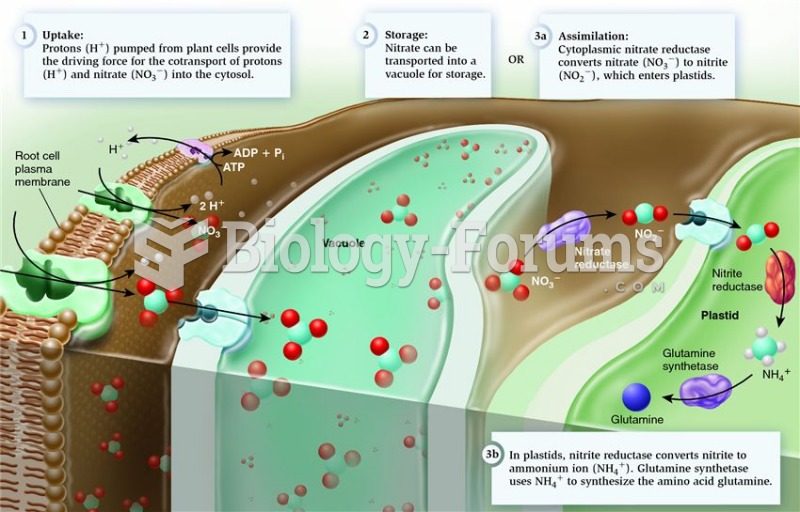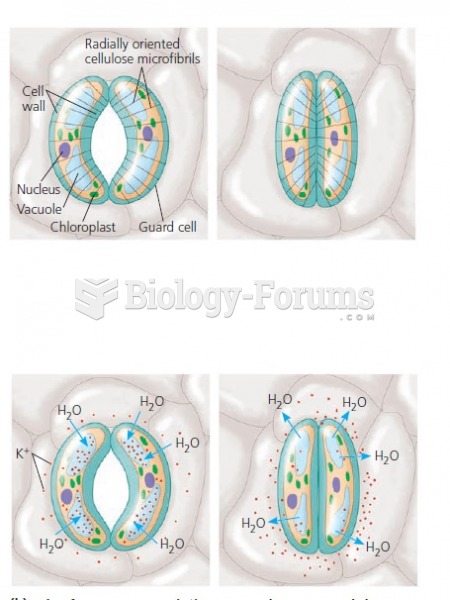|
|
|
There are over 65,000 known species of protozoa. About 10,000 species are parasitic.
Immunoglobulin injections may give short-term protection against, or reduce severity of certain diseases. They help people who have an inherited problem making their own antibodies, or those who are having certain types of cancer treatments.
It is difficult to obtain enough calcium without consuming milk or other dairy foods.
There are immediate benefits of chiropractic adjustments that are visible via magnetic resonance imaging (MRI). It shows that spinal manipulation therapy is effective in decreasing pain and increasing the gaps between the vertebrae, reducing pressure that leads to pain.
More than 150,000 Americans killed by cardiovascular disease are younger than the age of 65 years.







